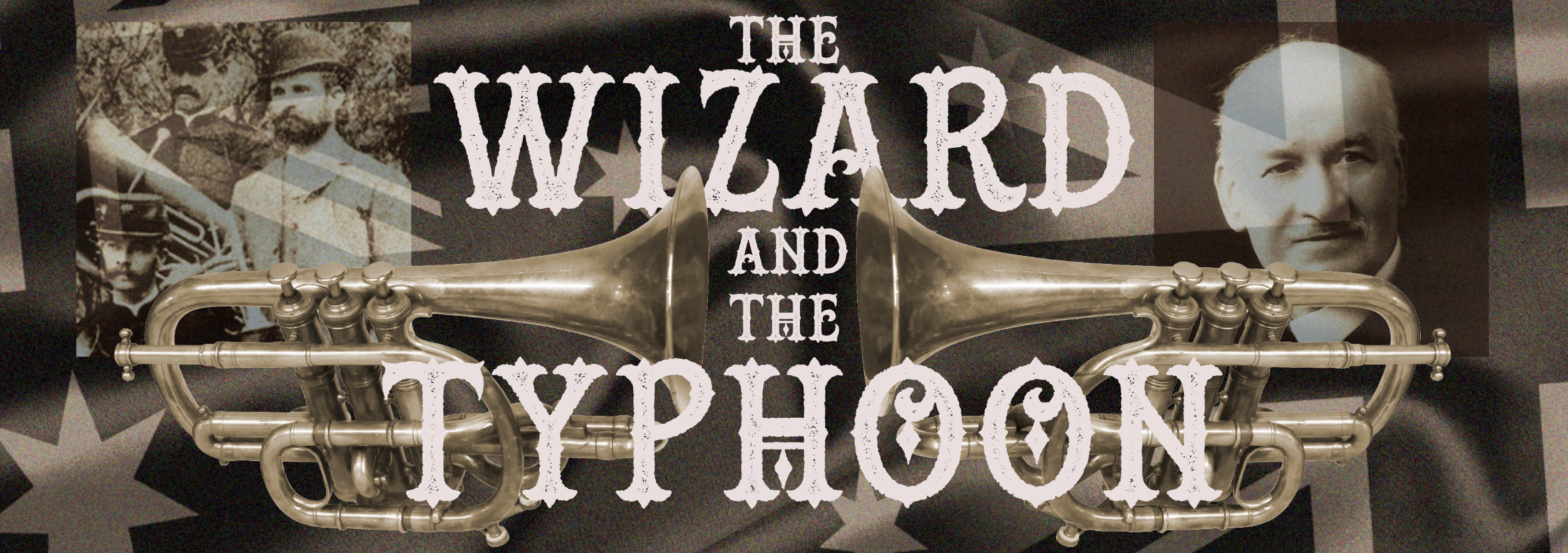Brass music always seems to sound at its best ‘in situ’ with a good brass band before you, but given that many people have not heard a Bulch or Allan piece, and that we’re fortunate that some has been recorded, we want to give you the opportunity to hear it. Of course in George Allan and Thomas Bulch’s day the ‘phonograph’ was a relatively new invention and it’s possible neither was able to hear their own music recorded during their lifetimes. Both composers would have been able to hear their music broadcast in the early days of radio, and we have seen that their music was broadcast from newspaper published radio schedules, but of course, it would have been played live by a brass band in the radio studios.
Thomas Bulch’s Music
I’m listing the recordings I have of Thomas Bulch’s music first, for no other reason than that he was the first of the two, we believe, to have a composition published. Partly on account of being, by fifteen months, the older of the two. The first three recordings were made by The Kew Band, from Melbourne, Australia as part of their excellent ‘On The March’ CD – an excellent band, formed in 1925. It’s a sad fact that Thomas Bulch became largely forgotten in Shildon after emigrating, and though we know his music was bought and played here, we’ve not found any British recordings of Bulch.
“South Street” by Thomas E Bulch (perf. by The Kew Band)
“Sandhurst” by Thomas E Bulch (perf. by The Kew Band)
“Postman’s Parade” by Thomas E Bulch (perf. by The Kew Band)
“Torchlight Parade (piano)” by Thomas E Bulch (perf. by Alan Hicks – prod. Chris Latham)
“The Jubilee March (piano)” by Thomas E Bulch (1887) (rendered using Sibleius software transcribed by D. Reynolds)
“Newcastle” by Thomas E Bulch (c.1894) (rendered using Sibleius software and NotePerformer plug-in – transcribed by D. Reynolds)
“Canterbury Engineers” by Thomas E Bulch (1893) (rendered using Sibleius software transcribed by David Keefe of Oakleigh Brass Band, Vic. Australia)
“The Young Recruit” by Thomas E Bulch (1894) (rendered using Sibleius software transcribed by Dave Reynolds)
“Alice Bertha” (mazurka) by Henri Laski (aka Thomas E Bulch) (1904) (rendered using Sibleius software with NotePerformer transcribed by Dave Reynolds)
“Battle of Eureka” (contest march) by Thomas E Bulch (approx 1889) (rendered using Sibelius software with NotePerformer transcribed by Dave Reynolds)
George Allan’s Music
There are quite a few copies of the more popular George Allan compositions available, including 5 on the Black Dyke Mills Band’s “Great British Marches”, however we are most fortunate that Mr. Steve Robson, was involved in the recording of a collection of George Allan marches at the beginning of the millennium, featuring a number that he was able to discover in the attic of the former Shildon band room which were relatively unknown at the time. The collection featured the superb Ever Ready Band, Langbaurgh Brass Band, Barnard Castle Band and Ferryhill Town Band.
“The Wizard” by George Allan (perf. by Ever Ready Band)
“Imperioso” by George Allan (perf. by Langbaurgh Brass Band)
“Impetus” by George Allan (perf. by Ferryhill Town Band)
“Shawville” by George Allan (perf. by Barnard Castle Band)
“Lefebvre” by George Allan (perf. by Ever Ready Band)
“Battle Abbey” by George Allan (perf. by Ferryhill Town Band)
“Raby” by George Allan (perf. by Barnard Castle Band)
“Diomed” by George Allan (perf. by Langbaurgh Brass Band)
“Bravura” by George Allan (perf. by Ever Ready Band)
“Jupiter” by George Allan (perf. by Ferryhill Town Band)
“The Diplomat” by George Allan (perf. by Langbaurgh Brass Band)
“Knight Templar” by George Allan (perf. by Barnard Castle Band)
“Senator” by George Allan (perf. by Ever Ready Band)
“Ashbourne” by George Allan (perf. by Ashbourne Town Band)
“The Storm Fiend” (1887) by George Allan (rendered using Sibelius software and NotePerformer – transcribed by D. Reynolds)
“Belmont” by George Allan (rendered using Sibelius software with NotePerformer – transcribed by D. Reynolds)
“Aronia” by George Allan (rendered using Sibelius software with NotePerformer – transcribed by D. Reynolds)
“Gabriani” (Overture) by George Allan (rendered using Sibelius software with NotePerformer – transcribed by D. Reynolds)
